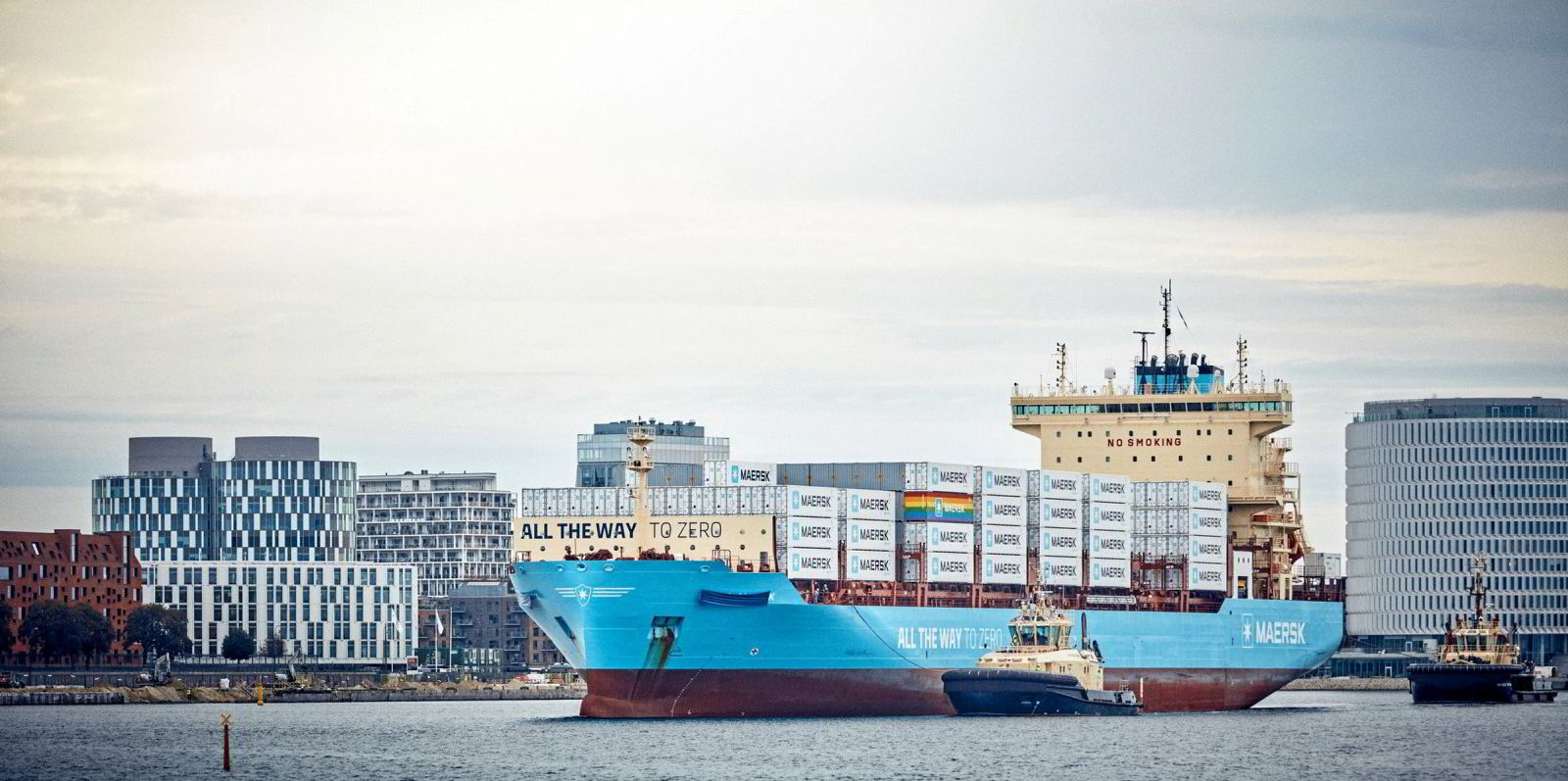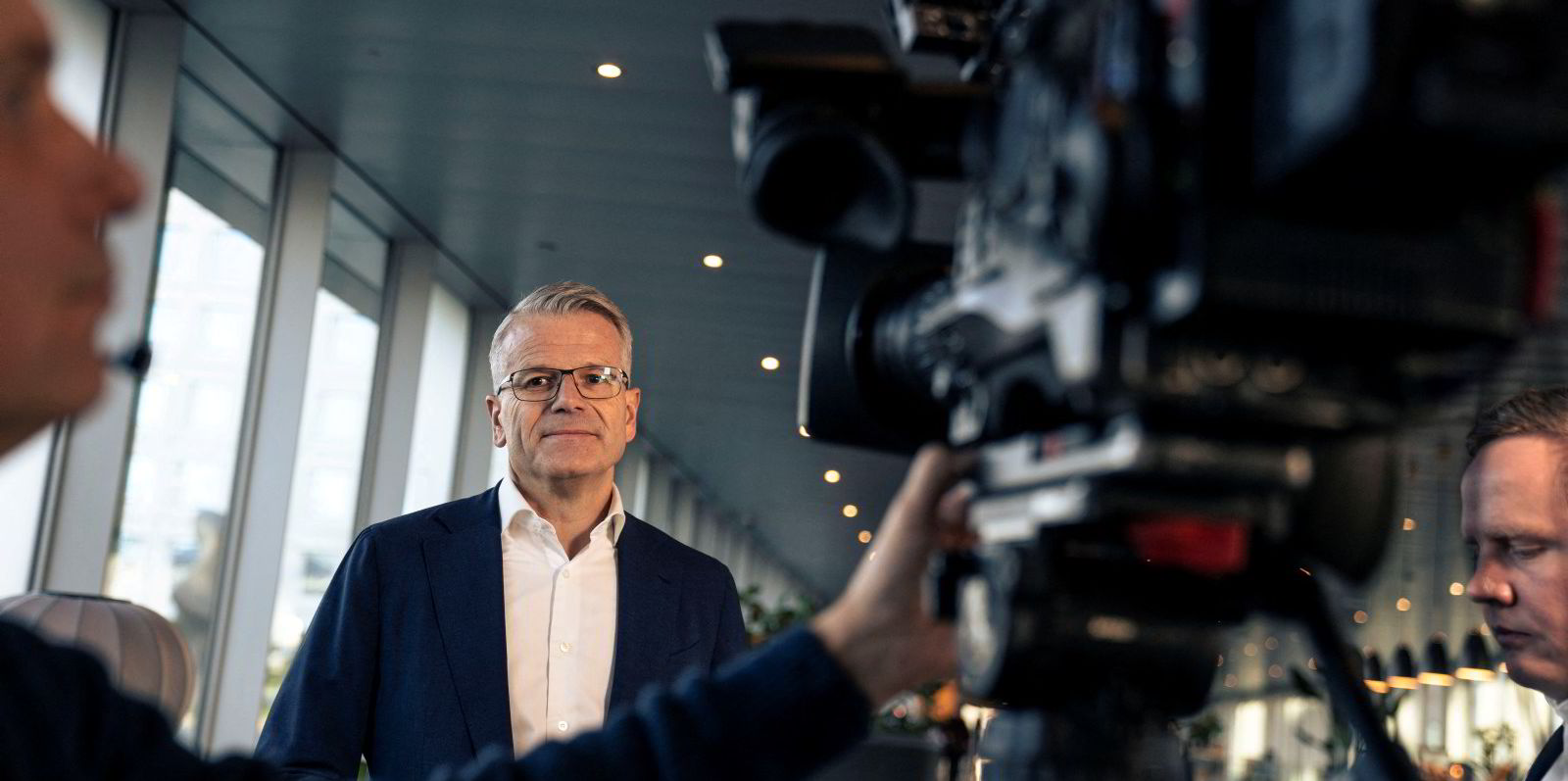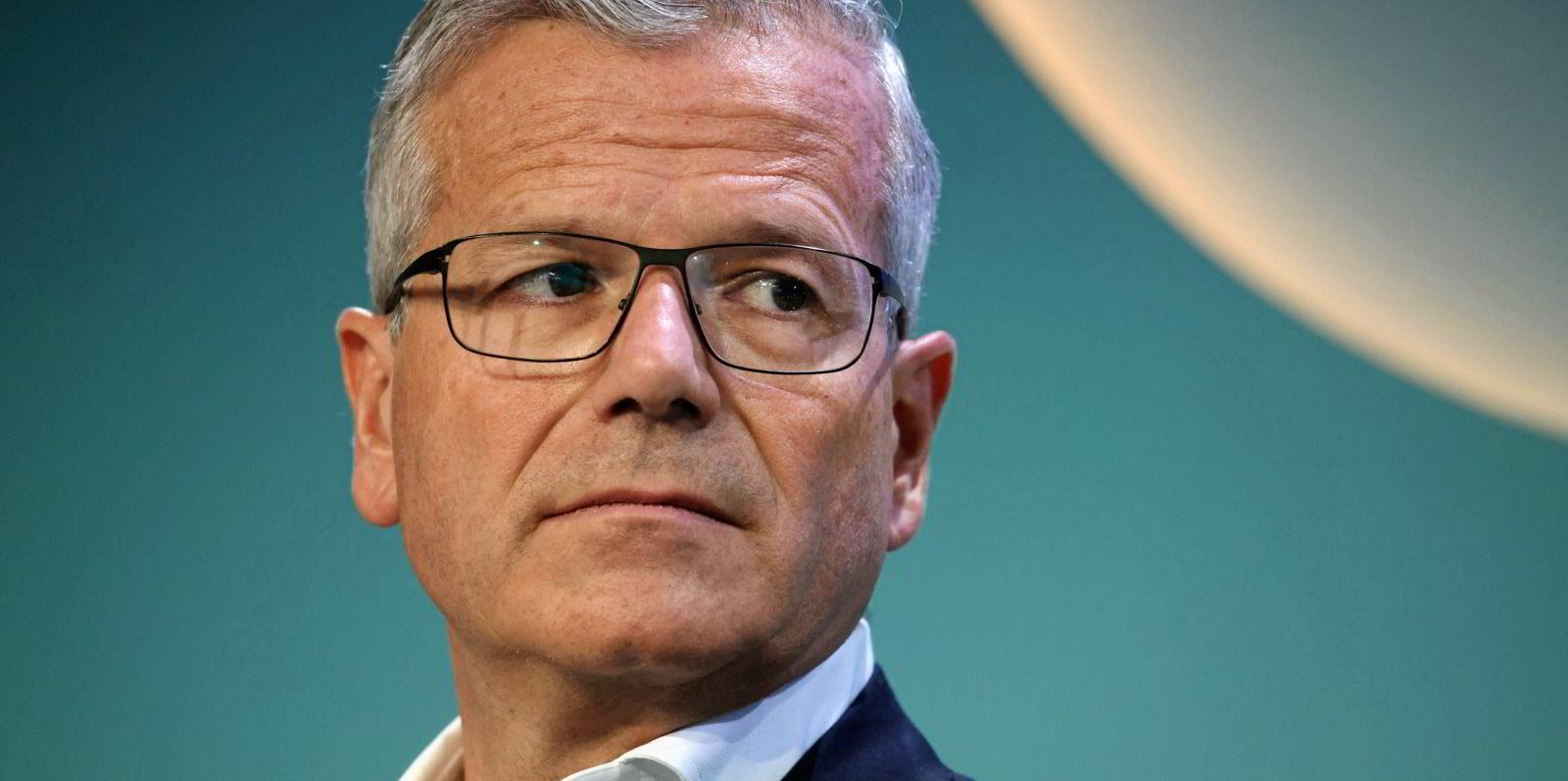Environmental groups have applauded AP Moller-Maersk’s announcement that its greenhouse gas goals, including its goal to hit net zero by 2040, won a “gold standard” verification.
But don’t think the NGOs have given Maersk an A grade. There is much more work ahead for that. While Maersk has taken a leadership role on green fuels with the first and biggest orderbook of methanol-powered newbuildings, it will face pressure for even more leadership.
Campaigners fighting for the container shipping industry to clean up its act are not giving the Danish container giant a pass; they want to see even more ambition, a path to real zero-emissions options and a commitment to retrofitting one of the world’s largest fleets.

As TradeWinds reported last week, Maersk unveiled that it has become the first shipping company to have its climate goals validated by the Science Based Targets initiative. The nonprofit effort known as SBTi validates companies’ climate targets against the Paris Agreement’s aim to halt global temperature rises at 1.5C above pre-industrial levels.
The announcement drew scant attention at a conference call with analysts to discuss the Copenhagen-listed company’s quarterly results.
But for members of Ship It Zero, a coalition of groups led by Pacific Environment and Stand.earth that are working to convince major retail brands to adopt green shipping, the SBTi announcement mattered.
Jim Ace, a senior campaigner at Stand.earth, applauded the step as a breakthrough because it is the first carrier to take so ambitious a step.
“We saw this in our report card from last year that Maersk was very clearly a leader — head and shoulders above its competition,” he said, referring to a scorecard in which the Danish giant’s B grade was the highest of the major liner operators.
Grace Healy, interim senior director for Pacific Environment’s climate campaign, agreed.
“I think it’s really important that we see … these large companies who have so much power really take bold action, even ahead of what we’re seeing come out of regulatory bodies,” she said.
To ensure alignment with a 1.5C trajectory, SBTi does expect more of shipping companies than meeting the International Maritime Organization’s climate goals, and Maersk has committed to do that by aiming for net-zero greenhouse gas emissions by 2040.
But Ace said Maersk should put its ships on a path to zero emissions by 2030, and Pacific Environment Ship It Zero lead Jonathan Butler said it needs to focus on its existing fleet of ships.
Maersk has taken delivery of the world’s first methanol-powered container ships, and the number is scheduled to rise to 18 by the end of 2025.

Healy said Ship It Zero wants to see the shipping giant set some specific benchmarks for retrofitting its existing fleet.
In its sustainability report, Maersk said it is looking at retrofitting solutions to boost fleet efficiency. The company has launched a pilot to carry out the first retrofit of a container ship to run on methanol and said in its annual report that it wants to do more.
The Ship It Zero coalition is supportive of green methanol — made from renewable energy-produced hydrogen combined with captured carbon — as an alternative fuel for shipping.
“Our position is: electrify everything that can be electrified and then from there start to look towards hydrogen-based fuels with a strong preference for, ultimately, green hydrogen in a fuel cell because that is truly zero emissions,” Healy said.
And she added that it is not just about climate, but also public health, and producing methanol from fossil fuels has significant associated impacts.
But with Maersk in the lead, Ace said the group will also be watching its other liner operators.
“Now it’s up to its competitors to up their game,” he said.
While Maersk has also taken a lead by ordering methanol-powered vessels and signing deals to power many of them with a green version of the fuel, its fleet list is all you need to look at to see the size of the mountain to be climbed to deliver on its goals — validated though they may be.
Alphaliner lists the company as having 684 ships, with one currently powered by methanol in addition to a total of 24 on order that will use the fuel. Maersk will be using fossil fuels for many years to come.
The company put it this way in its recent sustainability report: “This is only the beginning and many challenges lie ahead — especially the enormous task of enabling and scaling the world’s supply of green fuels.”
__________
Hull cleaning robots set to boost shipping in fuel-efficiency fight
Hull cleaning standards will be developed this year as shipping looks to robots to keep biofouling off ships and ensure they remain fuel efficient, as Craig Eason reports.
The International Organization for Standardization (ISO) is developing a pair of new standards for the industry, which will help in the testing of hull-cleaning robots and systems pioneered by an expanding array of start-ups.
Biofouling is seen as a growing problem due to the severe risks of invasive species around the world and the impact fouled hulls have on vessel performance and therefore CO2 emissions.
__________
Podcast: How a suspected oil slick off Brazil is just the tip of the iceberg
A suspected oil slick the size of 24,000 football pitches has been making headlines in Brazil.
But SkyTruth chief executive John Amos told TradeWinds’ Green Seas podcast that the pollution, which is believed to have emanated from a tanker, is what his organisation sees every day.
He said the slick, which has an area of 170 square km, is typical of discharges from a large moving vessel.
Click here to listen. Get the next episode by subscribing on Google Podcasts, Apple Podcasts, Stitcher, Pandora, Spotify or SoundCloud.
__________
Greek majors and Lloyd’s Register launch new initiative for greener shipping
Shipping’s decarbonisation drive has been enriched by one more research and innovation centre, set up by Lloyd’s Register in Greece with the backing of five of the country’s biggest shipping companies, as Harry Papachristou writes.
Capital Group, Navios Maritime Partners, Neda Maritime Agency, Star Bulk Carriers and Thenamaris, which own and operate about 500 ships between them, signed up to launch a global Maritime Emissions Reduction Centre (M-ERC).
The non-profit outfit will collaborate with Lloyd’s Register’s existing Maritime Decarbonisation Hub.






